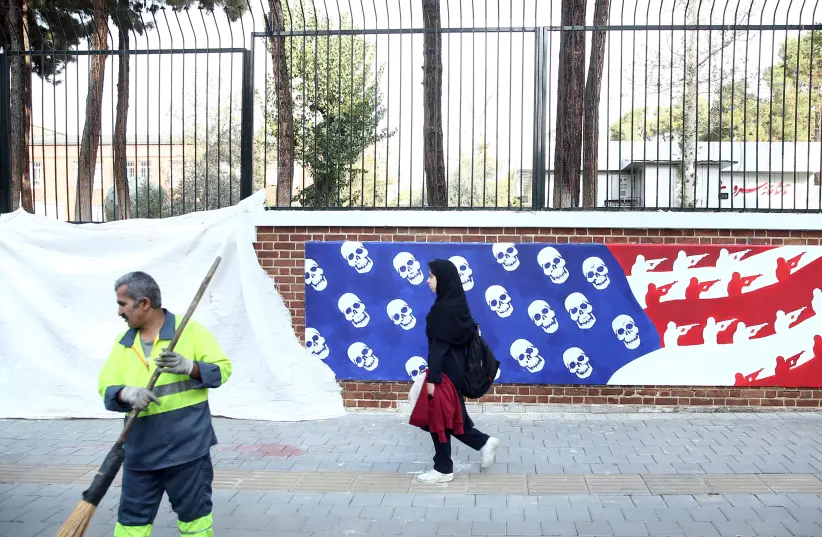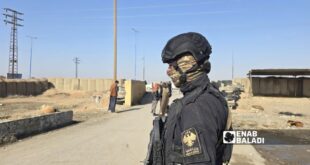After a period of stagnation, the US and Iran have in recent weeks embarked on negotiations for a mutual return to compliance with the Iran nuclear deal – the Joint Comprehensive Plan of Action (JCPOA). Until now, Iran has played hardball, demanding that the US move first and fully lift the sanctions it had placed on business with the Islamic Republic. But Iran may not have the economic fortitude that would allow it to sustain its stubbornness and economically survive under sanctions.
In 2018, then-US President Donald Trump acted in accordance with his harsh criticism of the JCPOA and withdrew from the agreement unilaterally. He then reimposed strict economic sanctions on Iran. Importantly, these included secondary sanctions, which prohibited American companies from dealing with non-Iranian entities that had economic dealings with Iran.
The JCPOA is a multilateral agreement signed under former President Barack Obama in 2015. The agreement, with Iran on the one side, and the US, European allies, China and Russia on the other, set limitations on the Iranian nuclear program, also arranging for supervision. In return, economic sanctions formerly placed on Iran were lifted.
President Joe Biden famously promised, as part of his election campaign, to return to the Iran nuclear deal. In a CNN op-ed, Biden called Trump’s “maximum pressure” policy a “boon to the regime in Iran” that allowed the Islamic Republic to come closer to developing a nuclear bomb – which Tehran says it has no intention of building.
Indeed, experts are unanimous in their estimation that Iran has now made significant steps toward building a bomb. Following the American withdrawal and reimposition of sanctions, the Islamic Republic has increasingly violated its obligations under the JCPOA, enriching uranium beyond the agreement’s limitations, for example.
However, while the sanctions have failed to deter the Iranian regime from pursuing its nuclear ambitions, they have dealt a heavy blow to the country’s economy. “I believe that Iran’s economy is closer to collapse than ever. Those people who believe that Iran’s ‘resistance economy’ has worked as it was resilient to crippling sanctions are right. But the stamina is now fading away,” Dr. Mahdi Ghodsi, an economist at the Vienna Institute for International Economic Studies and an expert on the Iranian economy, told The Media Line.
Dr. Gil Feiler, an expert in Middle Eastern economies and senior researcher at Bar-Ilan University’s Begin-Sadat Center for Strategic Studies, told The Media Line, “Iran has reached a low point because of Trump’s sanctions. … The [Iranian] rial lost 50% of its worth in less than two years. Meaning that Trump’s sanctions had an immense effect,” he said. “Almost 6 million people are unemployed.”
According to an April 2021 report by the International Monetary Fund (IMF), unemployment, which currently measures 10.8%, is expected to rise over the next two years.
In addition to the sanctions, Iran has been hit hard by the coronavirus pandemic. Ghodsi says that “due to sanctions and COVID, Iran’s crisis is a double-edged sword that wounds the society deeper than other countries.” To makes matters worse, the country is expected to vaccinate a significant segment of its population no earlier than mid-2022, according to another IMF report.
Ghodsi points to the high inflation that has plagued the country in recent years as one indication of Iran’s economic predicament. “Annual inflation was very high (up to 50%) in the past three years,” he says, “Many people who were receiving monthly cash handouts since the time of the populist [former President Mahmoud] Ahmadinejad, rose out of poverty. But because of very high annual inflation since that policy of Ahmadinejad and more strongly since the ‘maximum pressure’ campaign, that monthly cash handout is now worth perhaps 1 to 2 kilos of chicken.”
“The Iranian debt reached $254 billion,” says Feiler, pointing to another economic indicator. “That’s a huge debt and you have to remember that the Iranians aren’t living luxuriously in recent years.” The expert also adds that, for the first time since the Iranian Islamic revolution in 1979, the Islamic Republic turned to the IMF last year and asked for emergency assistance. Iran stated, it should be noted, that the requested $5 billion of assistance were intended to help it fight against the pandemic.
The Iranian economy has shrunk in recent years, experiencing almost 13% negative growth in 2018-2019, after the sanctions were put in place.
Despite all this, the Iranian economy isn’t expected to collapse in the very near future, say both experts, even if sanctions remain in place. Ghodsi says that “the Islamic Republic responded to the outside ‘maximum pressure’ [campaign] with the domestic ‘maximum suppression,’” killing hundreds of protesters in nationwide anti-government demonstrations that erupted in November 2019. The repression has helped the regime silence discontent with the economic hardship that has resulted from sanctions. “I can say that Iran’s resistance economy along with the ‘maximum suppression’ will allow the government to continue its economy,” Ghodsi said.
In addition to the suppression of dissidents, Feiler points to a recent deal signed between China and the Islamic Republic, cementing a 25-year agreement to cooperate in trade, among other matters. This deal, along with other actions by countries that bypass American limitations, allows the regime the breathing room it needs to survive.
However, while the Israeli expert agrees that the Iranian economy won’t collapse tomorrow, he thinks that its ability to survive with the sanctions in place is very limited. “If Trump’s sanctions would have stayed in place another four to five years, and [if] they would have tightened them even more and monitored the smuggling,” the Iranian regime would have collapsed, he says. “What Biden is going to do is throw them a lifeline.” Discontent caused by the increase in unemployment and poverty would have brought down the regime. All this creates pressure on Tehran to achieve a revival of the JCPOA, which the US and its European allies have missed, says Feiler.
The Vienna expert does not speak of a political crumbling but says, “If sanctions are not removed quickly, the government may borrow again from the central bank, and the money supply will continuously grow more than the size of the economy. This may potentially lead to hyperinflation beyond control, perhaps similar to what was observed in Venezuela. Then, given the exacerbated circumstances, the ticking bomb of cyclical nationwide protests will implode into a stronger domestic uprising. Therefore, the prospects [for the Iranian regime] cannot be depicted optimistically if the sanctions are not removed.”
With this danger in mind, Ghodsi says that the Iranians need “to compromise is the manner in which the US can return to the JCPOA.” Instead of demanding a full lifting of the sanctions, “while Iran’s noncompliance is still six or seven steps away from the JCPOA,” Tehran should push for a coordinated return to the agreement. Additionally, as Iran wishes to have sanctions not related to its nuclear program – such as those tied to human rights violations – removed, Ghodsi suggests that a wider agreement should be reached after a return to the nuclear deal – a path that was suggested previously but until now staunchly opposed by Tehran.
Once the sanctions are out of the way, the Iranian economy is expected to flourish. “One can expect that Iran’s economy will grow by exporting oil to its level prior to the US secondary sanctions under Trump,” Ghodsi says. Agreements with other countries will also boost the economy. He cautions, however, that business with Western companies may be slower in resuming because “Western firms may still need some time to evaluate the political risks around Iran.”
“They can leap ahead” once sanctions are lifted, says Feiler, “leap politically, militarily and economically, and this will, of course, strengthen the regime.” The Iranian economy has huge potential, the Bar-Ilan expert says. However, he doesn’t view this in a positive light. The Western powers “don’t have a true understanding of the Iranian regime,” or the fact that they will be strengthening it, and thus empowering tyranny and encouraging human rights violations.
 Eurasia Press & News
Eurasia Press & News




